“You create your own luck by working hard”: Lessons from international fragrance and body care brand, Malée
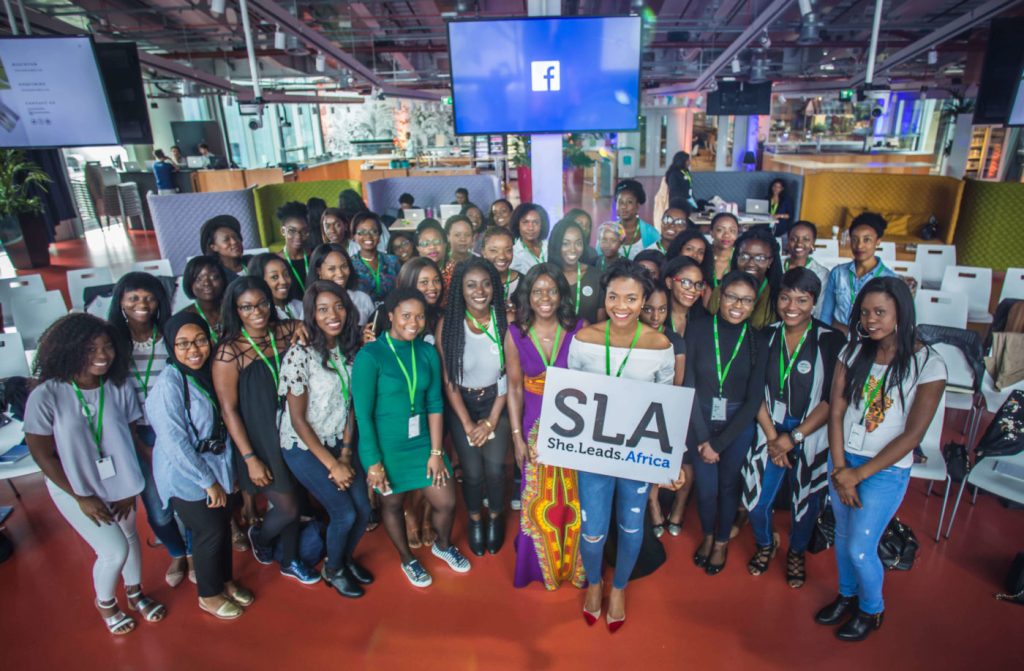
If you’re part of the SLA community, it’s likely that you have big dreams just like Zeze. Enormous dreams. Huge ones. The “I want to be Africa’s answer to L’Oreal” kinda dreams. That was Zeze’s dream for her healthy luxury fragrance and body care brand Malée, and over the last few years she has taken major steps to pursue that vision. Go girl. But how do you get to that point? How do you give yourself the right tips and stretch yourself? We know, it sounds quite overwhelming right? That’s why Zeze came to #SheHiveLondon to break to down for us, and lucky for you —we’ve got some of the best snippets from her talk. (By the way, nothing beats hearing all the gist for yourself in person —so try and make it to a #SheHive event near you, we’re in Lagos this October, so don’t dull yourself and get your ticket now). First of all, Zeze wouldn’t take no for an answer Even when pros like her college marketing professor told her that there was no real opportunity for a brand like Malée, it didn’t stop her. She was relentless from day 1, travelling across South Africa to find hotels that she could partner with to stock her brand, and giving them products on consignment. Zeze took a step of faith and learned the ropes as she went along, looking for every opportunity to get her high-end, value for money product into the hands of her customers. She also went to major trade shows in the beauty and fragrance industry, such as Top Drawer in order to meet potential retailers who could stock Malée in their stores. Looking back, Zeze knows that no experience goes to waste From working in the stockroom of Faith Shoes, she learned the ropes of retail and running the store. She reminded us to “count everything you know today as something that will prepare you for tomorrow”. We create luck by working hard, and within a few years her hard work began to pay off. Malée was featured on CNN in 2011, giving it some major exposure. But that was just the beginning. By 2011 Malée had won two awards, and by 2012 it was featured in one of the world-leading trend forecasting websites Trend Bible, confirming that Malée would be the next big thing. But building a successful business doesn’t come without its challenges In the same year, Zeze launched Malée’s first physical store and manufacturing facility to help other small businesses create new products. Shortly afterwards, she had to rethink her business model, and make some major changes. That included closing the retail store and manufacturing facility, which was difficult, but it was the right thing to do for Malée. It be like that sometimes; things change. Accepting that you don’t know it all is part of being a successful business woman, and it keeps you humble. Shortly afterwards, Zeze invited four of the smartest people she knew to South Africa to give her what felt like her own personal Business School crash course. Ladies, this point is key —build on your strengths but also make sure you’ve filled major skills gaps, there’s nothing wrong with needing a bit of help. A true mogul never stays down for long After two years of hustling hard to bring Malée into the UK, it will now be stocked at some of the largest, most influential retailers: Harvey Nichols and Fenwick. A good hustle isn’t enough to get your products in stores though, you also need a unique product, and for Malée, their high-quality, healthy, authentic African-inspired range is what made all the difference. Get to know desperation Sounds crazy right? Get to know desperation, so that you can ignore it. Too many times we let desperation drive us to making the wrong choices. Being able to tell when desperation is driving you instead of passion and common sense will save you time, money, and maybe some tears too. Stay inspired and completely focused on your goal: that is what will sustain you when things get really tough. We couldn’t leave this post without talking about the CA$H Capital is one of the major things on any entrepreneur’s mind, after all there’s a lot we can do with money. We all dream of getting that magical cheque that will sort everything out, but Zeze suggests it’s best to start with what you have now. Save all that you can, be smart with your money and even if you can only make one product, one is enough to sell and test whether people actually want to buy your stuff. One sale might just lead to someone pre-ordering a large quantity, but you never know unless you try. It’s called bootstrapping my friend, and most times, having limited resources actually helps us to make better choices.
4 helpful tips from Angela Ochello in ‘The Governor’
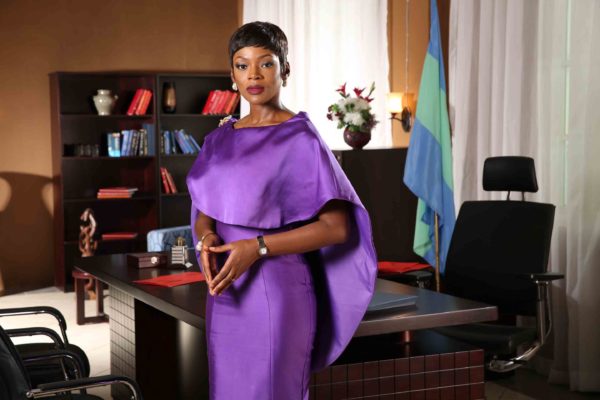
There’s just something incredibly beautiful about undertakings that require us to literally break our own glass ceiling. So many women are told to forget about venturing into active politics. And the appeal of this sector, especially in Africa has been generally zilch. At least this can be spiced up in our imaginations. EbonyLife TV’s series The Governor follows the ups and downs of Angela Ochello the Governor of Savannah state. We don’t know about you but for us, The Governor is particularly inspiring. We’ve learned a lot about decking out our own spaces, whether in politics, business, career or whatever it is we do. Here’s what else we’re learning from The Governor. Dress the part The 42-year-old Governor has a signature style that’s all her own, one that features a pixie haircut, classic and figure-flattering dresses and yes, dark lipstick. Equal parts sweet and no-nonsense. It’s a look that says any woman can easily be the boss and still look effortlessly sassy, no matter her age. And it’s no surprise that we love it! Age like a pro! We’re a little, okay very, excited about the revelation that Angela is 42! She looks so fabulous. Yeah, we know there’s the popular argument that good genes are responsible. Still Motherland Moguls, you can be a busy smart woman and still look this good. The days of looking raggedy in the name of being ambitious are behind us. Armed with the right information and care, you too can age like a pro. Multitasking…our turf It will surprise you to know that highly successful women like the Governor of Savannah state, also run successful homes. Applying multitasking skills to your business or job actually works. Imagine that in addition to a hectic career or business, most African women still do school runs, cook, clean and get other life errands done. If that’s not superwoman-ish, I wonder what is! Politics actually looks good on women Any woman who can endure the brutalities of politics deserves our respect. If you’re unsure over your plans to join politics, Angela Ochello makes it look like it’s not such a big deal. Real life hasn’t yet determined if more women, especially of African descent can safely attain lofty political heights. Still, we think women should go for it. It’s possible, ladies! You can watch the series on Thursdays at 9pm WAT on EbonyLife TV (DSTV Channel 165).
Nse Ikpe-Etime: 5 things to learn from the actress’ beauty startup
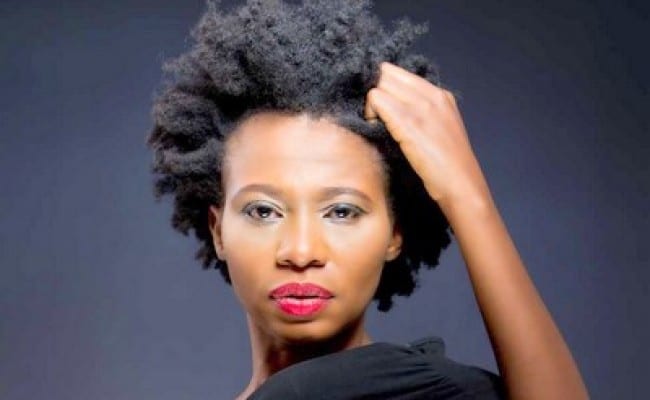
Last month, award-winning Nollywood actress, Nse Ikpe-Etim started her own beauty line, Eden’s Theory. She liaised with a UK-based company to launch a homemade beauty product line and founded it with Victoria Thomas, an award-winning filmmaker. Nse is following the footsteps of several other famous actresses and singers who’ve made the move into the beauty industry, including Queen Bey herself. Now, you may be asking, why is Nse or all other enterprising celebrities taking this leap? Here are a few things to learn from her wise business venture. Play on your strengths Being an actress, Nse is automatically in the beauty industry. Her celebrity status thrusts her with responsibility and women on the continent look up to her. Photo shoots, films, award ceremonies, you name it, she’s probably been to dozens of these and for each event, she has to step out looking her best. The beauty industry was a shoo-in for her in this sense. She’s already probably used several products to maintain her glamorous appearance and therefore understands what works and what doesn’t. In an interview, she said: “People always ask about my skin and hair. Many of them assume that I use very expensive products, but I have actually always used natural oils and butters. With Eden’s Theory, you get to retain the best bits of African butters while oozing some of your personality into a product of your choice.” She already knew she had a ready market waiting and so she took the bull by the horn. It’s best to venture into areas where we have some experience. Sure, challenging yourself is fine, but, especially in business, it’s best to get into an area where you have experience and passion. Don’t be a one-trick pony By venturing into this business, Nse is distinguishing herself as a #MotherlandMogul who can do more than just act. This is a bonus as it sets her a bar above her current occupation. In this century, career and occupation are not set in stone. What Nse is showing us is that you can follow several passions —all at once. She also has a family, so #MotherlandMoguls that’s clearly not a reason for us not to pursue our dreams anymore. Business is for everyone I think most of us grew up with the notion that certain people were made for certain things. Not being ‘good in math’ is hogwash. Business is something that everyone can succeed in, as long as you venture into an area you have a passion for. As an actress, Nse did not limit herself to the entertainment world. In fact, she leveraged her popularity to get press coverage for the launch and to advertise her products. Beauty and brains are virtues we can all have. They are not mutually exclusive concepts. And in the business world, what will ensure your success is not whether or not you remember what logarithm is. It’s whether you are willing to put in the effort, blood and sweat to see your venture grow. Your past builds you Before becoming an actress, Nse was in the broadcasting, banking and retailing industries. She took some time to find her niche as an actress. Evidently, this has proven to be an advantage for her. Her experience in broadcasting has given her some needed PR knowledge to showcase her product to her audience in the best way possible. Her stint in retailing gave her some business know-how on business. I guess that’s not something she learnt as a Theatre Arts student at the University of Calabar. Whatever your side hustle or full-time job, as you climb the ladder to self-discovery, never dismiss the process. It may very well be what defines you in the future. Your friends are your greatest strength Nse co-founded her beauty line with a friend, Victoria Thomas, a successful filmmaker in her own right. These ties were probably made in their mutual stake holdings in the film industry. This goes to show that as #MotherlandMoguls, we really ought to pull each other up. Partnering in business is a very good way of doing. Different personalities tend to bring in different strengths into the overall success of a business. As you contemplate that business idea and start work on your business plan, keep these lessons from Nse in mind. They might give you more ideas on how to become that big shot CEO of a business empire.
Helen Dausen: If used well, fear can be your propeller
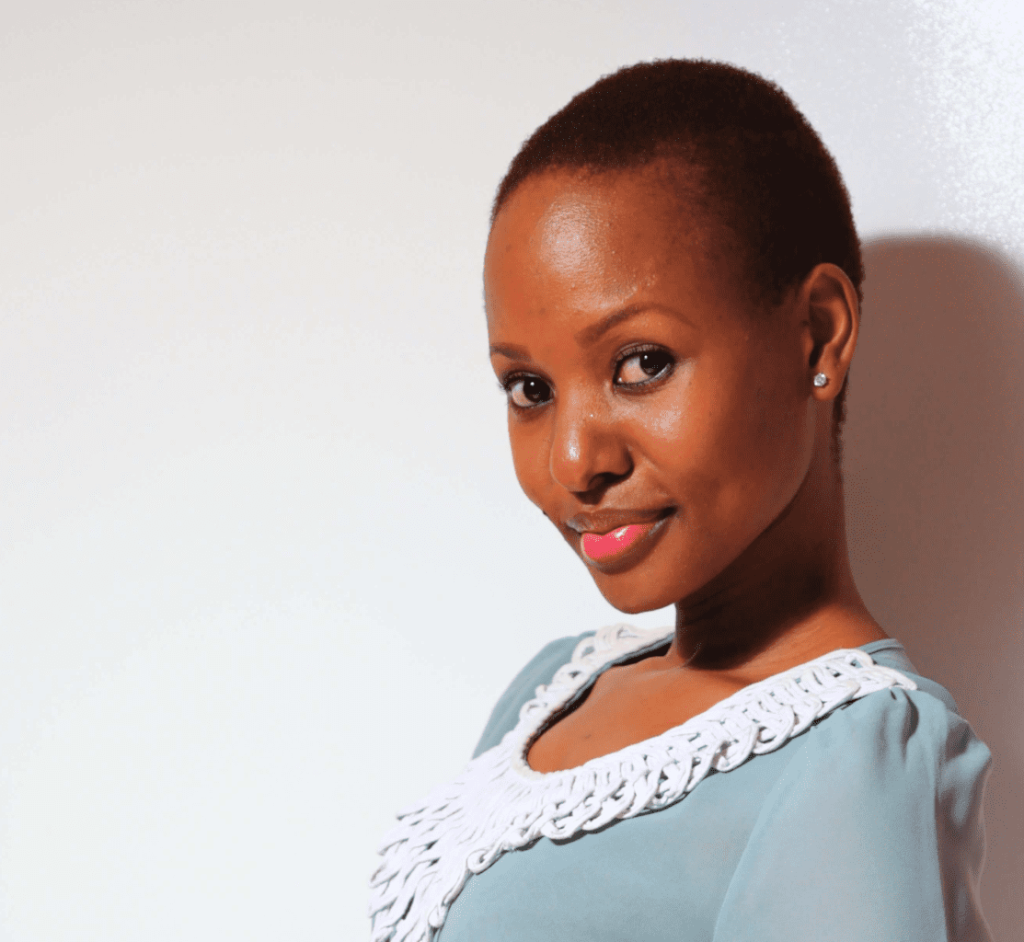
There was a time when it wasn’t easy for Tanzanian women to find a skincare product that was 100% natural and meant for the African skin. That was before Tanzanian-made African beauty brand, Nuya’s Essence came along. Nuya’s Essence is a natural bath and body care brand that handcrafts natural products from botanical oils, butter, and herbs. The product is made from the purest botanical and non-toxic ingredients there is. Largely, the ingredients are sourced locally and from South Africa, Ghana, India, and Morocco. Njeri Meja, our SLA contributor spoke to former beauty queen and formulator of Nuya’s Essence, Helen Dausen. She found out more about how Helen’s beauty queen past helped her business and the steps Helen takes to improve her hustle. What motivated you to start Nuya’s Essence? I have always been so careful about how I nourish my skin. I think I got it from my mother. As a young girl, she would apply olive oil and pure coconut oil on my sisters and I. I had also been unemployed and needed to do something about my life. While in college, I wondered if I could get a quality soap to complement my beauty care routine. So I went looking and found some DIY ideas for soap. I started mixing stuff at home and sharing recipes with friends. I would also tell them what to apply or what food to eat and the like. The idea of Nuya’s Essence first gained root in my heart in April 2013. However, we didn’t start marketing it publicly until in June 2014. How did you start? I started small with support from my parents. I began with making handmade skincare products from the backyard at home. I sold to my mom’s salon, farmers market, pop-up shops, and friends. Did being a beauty queen help your business in any way? Yes, it did. As the crowned Miss Universe Tanzania 2010, people often asked about my skin and hair-care routines. That also fueled my decision to build a skincare brand. Who is your target audience? Actually, everyone can use my products. The marketplace is saturated with products made with harmful chemicals patronized by unsuspecting African women. I wanted to create something great enough to be an option to the mainstream skincare products. Nuya’s Essence is for women looking to go all natural and adopt a healthy lifestyle. Tell us more about your range of products Our natural skincare range is formulated to work with all skin types. The ingredients are carefully selected and suited for everyone. We do not add fillers, toxic chemicals or test them on animals. Our products are recyclable, bio-degradable, eco-friendly and safe enough to be used by kids. It can be used on sensitive skin, very sensitive and mature skin. We produce them in small batches with our customers’ satisfaction in mind and they do serve the purpose. Did I tell you that they also smell amazing? Oh yes, they do! Currently, our product range includes natural handmade soaps, body oil, body butter, body scrub, 100% pure coconut oil, and raw shea butter. However, we keep working at developing new products. How have you improved yourself as an entrepreneur? I just completed a Mandela Washington Fellowship program for Young African Leaders. The intense 6-week-long program ended on the 4th of August 2016. I worked hard at it and formed great partnerships and friendships. It was a great experience and boost for my personal and business growth. I look forward to better opportunities. I have also done some training in natural/organic skincare formulation in Johor Bahru, Malaysia. There, I learnt the basics of formulating a perfect product. I still study online, read lots of books on the subject and strive to improve my beauty range or create new ones. Any challenges? How do you mitigate them? My biggest challenge so far is getting customers to believe in our products, especially women. I started using my products long before I sold them. This made me more comfortable and confident to tell other women about them. Personally, I have experienced the healing powers of plants and I have been able to achieve youthful, flawless, glowing and evenly-toned skin. However, getting clients to believe in you is hard. To tackle this, I give free samples for trials and this has worked. They usually return with their friends and this time, they actually buy. Word goes round and we’ve done well so far. How would you advice a woman looking starting something like Nuya’s Essence? Fear will always be a constant factor but if used well, can be your propeller. You may never enjoy absolute support. Money may never be enough. But girl, you can rise above it all. The trick is to start with what you have at the moment and then grow in small paces. Last words? One of my favorite successful businessmen said, “The harder you work, the luckier you get.” I believe there are so many opportunities out there. You just have to be ready to take them. Be willing to take risks and accept failure as a learning curve. The only real failure is not trying at all. After all, what’s the worse that can happen? Always believe in something. Personally, my hope and faith are in God. I am at peace with myself, my work and the people around me and that helps. I set out to glorify Him in everything I do as a person or business woman. Always have something or someone to fall back on for support. You can never go wrong with this. Want to see women you know featured on SLA? Tell us what amazing things women are doing in your communities here.
How to be a fashion model when you’re clueless
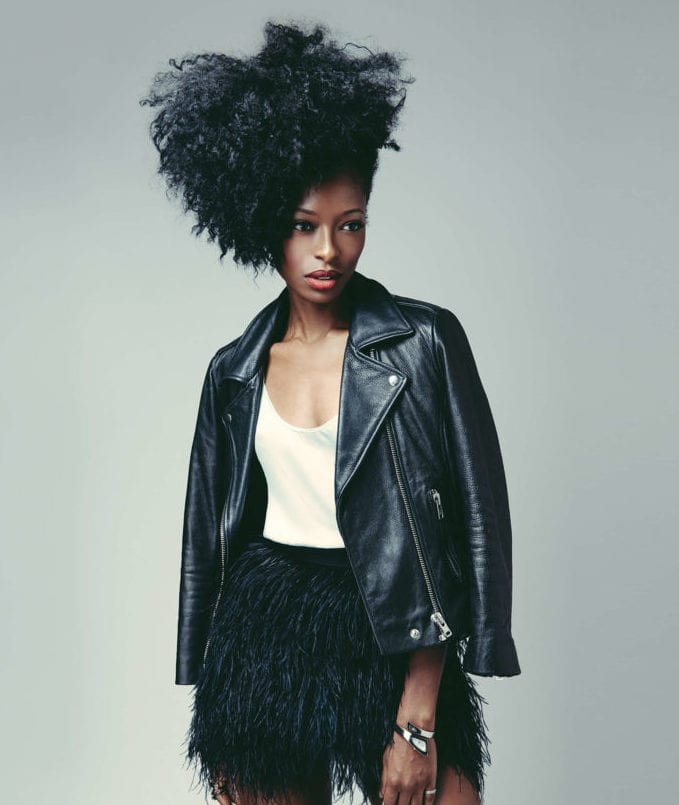
Those who are aware know that modelling is a fast-paced exciting career that can take you to new places. But breaking into the fashion scene can be hard, especially if you’re aiming international and you’re an African girl. To find out more, we talked to Aina Fadina, a model and entrepreneur who has done in-house work for Oscar De La Renta, Alexander McQueen, Versace and more. Aina graciously shared her advice on breaking into the fashion industry and the tools any aspiring model needs. Understand the business Top models from Naomi Campbell to Jourdan Dunn have called out the challenges of being a black model and Aina agrees. “I think the fashion business is still very challenging for any model. Period. The business has changed so much but for the black model, it is a lot harder. I have seen a slight increase of black girls in editorials and commercials. Brands have finally noticed the power consumers have, however, it is still challenging.” The challenge is further complicated by the fact that models now compete with celebrities for jobs. Aina’s advice is that if you understand the business and are strategic enough, you can pull through. Tips to get into the industry There are no shortcuts to this, you’ll have to work hard while remaining smart. Aina’s top tips are, Do your homework. Study boards of the top agencies and brands to learn about the business behind fashion and network authentically. Get a mentor! In every profession, you need mentorships so find someone willing to guide you through. The power of social media If you’re broke, have no connections and still want to be a model, social media is your friend. Learn to use it to your advantage. These days, clients are going directly to talents, so you need to know how to market yourself. Also, consider getting a part-time job in fashion or entertainment industry, it can help to gain access. Maintaining relevance as a model Now once you’ve gotten into the industry and are working your way to being a top model, you still need to be on top of your game. The most important thing for Aina is being nice to your clients and agents. She says you should always check in with your agents and have great work ethics and values. Make sure you show up before your call time and always offer to stay longer if needed. Aina shared this saying, “It is nice to be important; however, it is more important to be nice.” Wise words, right? Good luck to you as you embark on your modelling career!
DiElleCi: Working with sisters can be light on tough love
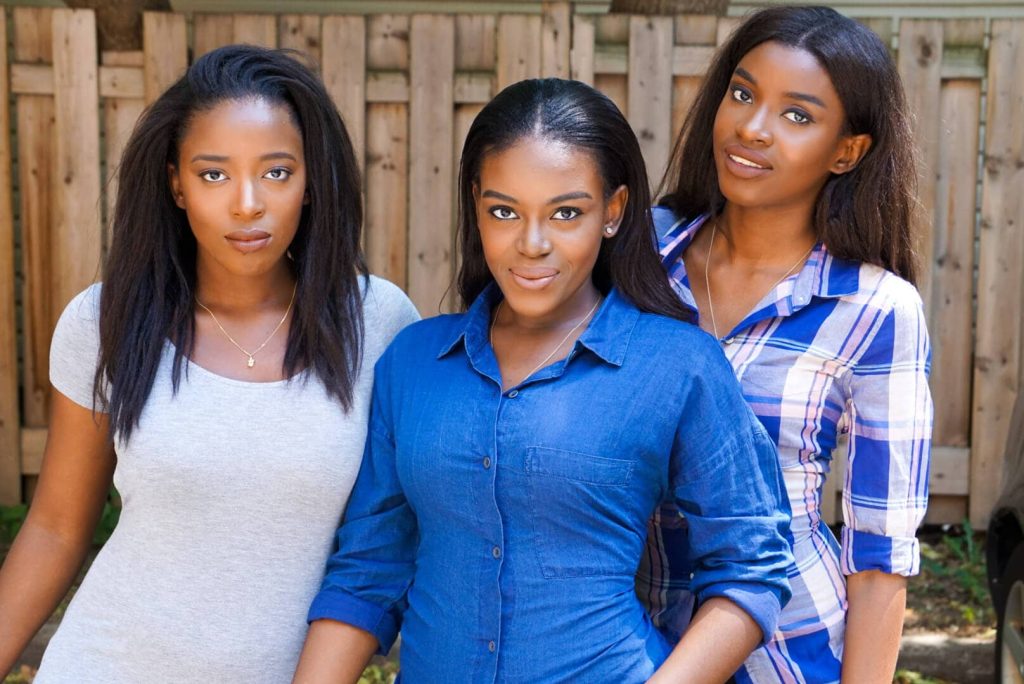
Diasy, Luisa and Cleo are Angolan sisters who are leaving their imprint on the blogosphere not just in English but Portuguese too. Their blog DiElleCi, a mash of their names, is becoming the go-to for advice on beauty, fashion and health. These sisters are all students, Cleo recently graduated with a degree in engineering, but find the time to give readers a peak into their lives. SLA reached out to them curious to know more. We learned that working with sisters is great but can be light on the tough love and reduces the need to micromanage. DiElleCi share more about running a bilingual blog, including what’s in their purses below. When did you start your blog? What lead you to it? We started our blog on February 10th, 2016 because we have always had a creative side. We also had the desire to do a project together. However, we noticed that as university students, the academic side of our lives was taking over the creative side that we very much exercised when we were younger. For that reason, we decided to create an outlet where we could share another side of us and our additional interests. Also we, as young African women, felt like we weren’t represented in social media, especially in the Portuguese speaking market. Have you faced any difficulties blogging in both Portuguese and English? Which of your audiences is bigger? The only difficulty we’ve had with running the blog in two languages has been ensuring that our voice remains the same both in English and in Portuguese, regardless of translation. So, it takes some time when translating posts since we need to add expressions for each language. But we are glad we have done so, since our biggest audience is the Portuguese one. Have you taken any special steps to grow your audience? Social media has been a great catalyst to the growth of our audience. Firstly, Facebook is great since almost everyone has an account, so we make sure to keep our Facebook page current and engaging. In addition, Instagram has been equally great since it has so many pages that cater to girls that share similar interests to ours. Because of that, we have been featured on some high quality pages and have seen more growth and exposure from them. Most importantly, we have made it a priority to remain consistent in both the frequency of posts and in the quality of content. How can a young African woman reading this start monetizing her blog? Blogs can be monetized in many ways. As a starting point for us, we decided to monetize our blog through affiliate links. However, we have noticed that it’s not the most sustainable option. We’re currently working on developing different ways to get a more sustainable return without compromising the overall brand. What is it like working together as sisters? Is there any conflict? Working with sisters is great because we share the same values and know each other very well so when conflicts arise, there are no issues in addressing certain situations. However, since we know each other so well and care about each other, sometimes it is hard to give much needed “tough love”. Above it all, the biggest benefit since we know each others weaknesses and strengths is that there is no need to micromanage, which makes task distribution easier. How do you find time to update your blog regularly as students? Being students has taught us about discipline and multi-tasking, so we have applied those attributes to our blogging routine. In addition, like we mentioned before, we separate our tasks according to our strengths and weaknesses. We have seen it has helps us save time and energy when tasks are well divided and only the best person for the job is in charge of a specific task. What’s the process of blogging like for you? How do you come up with content ideas? The process of blogging for us is very interactive. We have been very lucky because our audience has been very good at telling us what they like and what they want to see. Even more, we get inspired by our everyday routines and experiences and share what we think would be helpful or interesting. Most importantly, we gain inspiration by seeing ourselves as the audience and consistently asking ourselves what we would like to see. Can you share what’s in your purses right now? Wallet, student and Oyster card (for public transport in London), our blog planner, snacks, chapstick, a book we are currently reading, iPhone, portable charger and of course keys. What is the last song you played on your iTunes/iPod? We were just listening to the new Rihanna song ” Sledgehammer”. If you’d like to share your story with She Leads Africa, let us know more about you and your story here.
“Be realistically audacious” : Teniola Adejuwon on the 500 StartUps accelerator experience
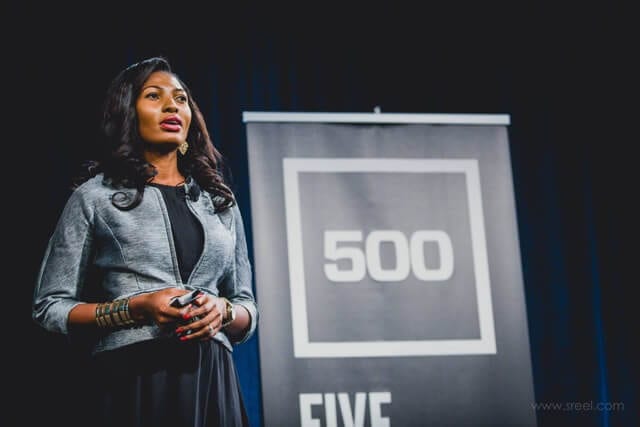
Podozi.com is a beauty ecommerce platform that gives African women access to both local and international beauty brands. Co-founders, Teniola Adejuwon and Wale Babatunde, recently completed a 4-month accelerator programme with 500 StartUps, a leading venture capital fund in Silicon Valley. To date, 500 StartUps has invested in over 1,500 businesses across 50 countries worldwide. Every year, thousands of businesses apply either through a formal application or referral, and after passing 5 or 6 rounds of interviews are accepted onto the programme. Podozi was one of 50 startups accepted for the most recent cohort ‘Batch 16’. With the programme, Podozi worked in Silicon Valley, learned how to take their business to the next level and received a net investment of $100k. In this interview, Teniola shares her experiences with 500 Startups and gives some advice for aspiring entrepreneurs. How did you get involved with 500 Startups? It came as a total surprise. Last year, we were introduced to 500 Startups through an investor who was a personal contact. As my mentor Tara Fela-Durotoye always reminds me, your network is your networth. Previously, the investor had mentioned that although they typically focus on Series A funded businesses or higher, they really liked the Podozi business. So we agreed to keep in touch for when the business grew bigger. Applying to 500 Startups was an aspiration of ours, which we planned to pursue in the future. About a year later, we got an email introducing us to 500 Startups, and that was it. How has being part of the 500 Startups programme helped develop Podozi? We recently completed the programme, so it’s still very early to articulate the full benefits, but being part of the 500 network is like being part of a global family. It’s a lifetime thing, where you grow and evolve. We were exposed to people and ideas from across the world. While we have formally finished the programme, we continue to keep in touch with our batch and the other businesses in the community via a group email. We have a well of resources to draw from and access to mentors who we can reach out to for advice. Throughout the programme, we had opportunities to pitch to hundreds of investors and peers in the startup ecosystem. One of our pinnacle moments was presenting Podozi during the closing ‘Demo Day’. Being able to articulate our brand raised our profile with international peers and investors, which also helped our profile in Nigeria. Also, to be eligible for the programme, we had to (re)incorporate as a U.S. company which gave us access to U.S. specific venture networks and investors. Tell us more about your experience in Silicon Valley as part of 500 Startups Batch 16? Living in California was an interesting experience. Given the 8-hour time difference, we were working from 9am to 7pm U.S. time, then worked after hours to service Nigeria alongside our colleagues back home. It was a demanding but authentic experience of what it means to run a truly international business. All businesses in our batch worked from the same office in San Francisco. This helped develop a spirit of camaraderie, collaboration and shared learning, which is not always a given in most accelerators. We travelled to Los Angeles, New York and other cities across the U.S. which gave us exposure to international best practices and processes. Once you get established processes in place, you’re able to serve your customers better. I’ve always been an advocate of this and Podozi advocates this too. While it’s not always possible to please everyone, I remind my team to put themselves in the customer’s shoes. Empowering the customer is crucial, and something businesses on the continent tend to miss. What advice would you give to aspiring startups and entrepreneurs? Cultivate an attitude of excellence. Being entrepreneurial isn’t about calling yourself the CEO, you need to have a long-term mindset. My first company, Beauty by Nature, ran the Beauty Business Masterclass series. We would teach attendees that no matter whether you’re a nail technician or a self-taught makeup artist, you need to develop your craft and put the right structures or systems in place to support it. That is the difference between a sustainable business and one that burns out quickly. Also, it is not only about funding. Successful entrepreneurs are convinced beyond reasonable doubt about what they are doing. In the past I’ve seen African startups get deterred early on by investor questions about about basic things like their business model or business numbers. If you are not convinced about your product, it will be difficult to enter in, let alone survive in Silicon Valley. It can become quite distracting when your brand gets bigger and your profile increases, so you need to keep focused. As one of my mentors says, ‘the media, awards and accolades will come; just do your work’. What tips would you recommend for making a successful application to an accelerator? Firstly, do your homework. There are funds and accelerator programmes that may be targeted to your industry or geography. Be aware that while some of them are global, their funds might be localised to specific regions. Then, develop a proof of concept. Ideas are a dime a dozen, so don’t just go about touting ideas. Don’t simply try to replicate an idea that works in another country, ensure that it’s relevant to your market. My mentor, Mrs Ibukun Awosika says, “Be the expert of your business – know your numbers and keep your books tidy”. Businesses sometimes rush to launch an app without considering the consumer behaviour in their locality or whether they have the capacity in-house to maintain such. In e-commerce the big question is traction! It’s all about your metrics. Third, be humble enough to admit what you don’t know and be ready to learn quickly. Utilise your resources, prepare in advance and ask as many questions as possible, there’s a wealth of resources out there like Quora to keep you
Zeze Oriaikhi-Sao: Following my life long dream makes the best use of my time
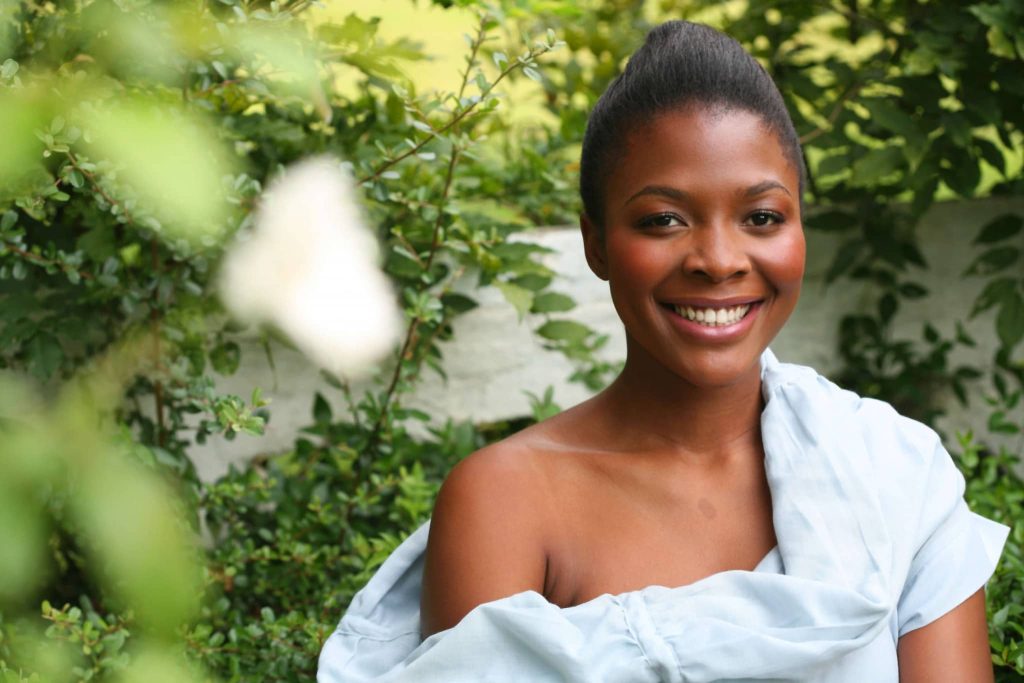
According to Zeze Oriaikhi-Sao the qualities necessary for a successful beauty entrepreneur are determination, passion, instinct, financial savvy and strong communication skills. Just having a good idea isn’t enough. Zeze is the founder of Malée, a range of luxury fragrance and body care products that draws inspiration from the traditional beauty secrets found across Africa. African beauty and healing secrets don’t get their due and with Malée, Zeze updates them with modern science and technology. The name Malée itself comes from her great grandmother and is a term for a strong-willed woman in Bini language. What pushed you to start Malée? In 2009, I moved countries from UK to South Africa. It was the height of the recession and finding a job wasn’t easy. After halted interview processes, I decided that following a life long dream would be a good way to make the best use of my time while having a larger social and economic impact along the way. In a few words, circumstances of the recession forced me to believe that I had something to offer to not only to consumers but to the African economy. Your brand seems to draw heavily from African traditions, is there any particular reason why you’re inspired by tradition? I believe there are hidden gems in tradition. Unlocking those with the scientific knowledge we have now and giving a voice to cultures and traditions that otherwise don’t have one in the global market place is a passion. Africa is full of beauty and I deeply motivated to share that. Malée is present in both South Africa and the UK, what challenges have you faced expanding your brand to other countries? Each market brings with it a lot of learning. The most important thing I have learnt is that regardless of the country, establishing a brand takes patience, consistency in the quality of your product and service, belief in your brand/business and building a great team to help turn the vision into reality. We have launched in the UK with 6 of our best selling products. On a stand alone basis they do what we say they should. They work! Do you have any plans to continue expanding within Africa? Yes, the rest of Africa is definitely on the cards for Malée. I am excited about the next 5 years. How do you unwind after a long day? Taking time out for me some ‘me time’. My favourite routine is my at home spa, light some candles, have music playing through my bluetooth headphones then I scrub before settling into the bath, usually while reading something. What’s one thing in your fridge you always use as a homemade skin treatment? Lemons; they are just so versatile and harness a lot of natural benefit for the skin. My favourite remedies are my DIY facemask which can be made by mixing baking soda, honey and lemon juice. You can also use lemon to make a detox toner with some green tea and water. How do you source ingredients for your products? Ingredient sourcing process begins with understanding what makes up on traditional beauty remedies. I dissect these to understand what ingredients actually have long term skin care or aromatherapy benefits. We take these away and plug them into our formulations and then look for the best local suppliers who have food grade ingredients. If it is good enough to eat, it is good enough for your skin. If you’d like to share your story with She Leads Africa, let us know more about you and your story here.
3 young African women software developers want to give you global hair inspiration
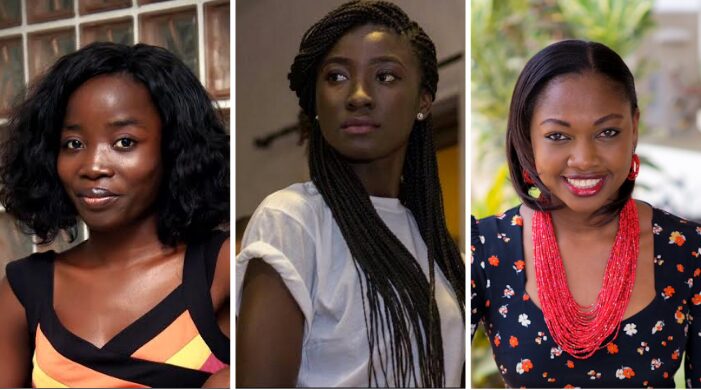
SLA interviewed Priscilla Hazel, Cassandra Sarfo, and Esther Olatunde, cofounders of the Tress App. In this interview, they share insights on how they met, their Tress app, and their vision for their enterprise. Who are the women behind Tress and how did you all meet? We are three software entrepreneurs from Ghana and Nigeria who are passionate about using technology to improve lives. Priscilla Hazel is the team hustler and is responsible for business strategy, public relations, and keeping morale high. Esther Olatunde is the hacker within the team. She’s the backbone of our technical development and responsible for keeping the app running. Cassandra Sarfo is our resident hipster – she has a keen eye for detail, and is responsible for the user interface design and user experience of the Tress app. We’ve known each other for about 2 years after first meeting at the Meltwater Entrepreneurial School of Technology, and we’re are excited to be working on something that affects us on a daily basis. What is Tress ? Tress is a mobile app and a fun, passionate community of black women from around the world sharing and discovering hairstyle inspiration. With Tress, women can: 1. Discover new hairstyles to inspire them the next time they’re at the salon. 2. See detailed information about hairstyles such as the products used, the name of the salon, and price range. 3. Share their favourite hairstyles and get compliments and recommendations from our supportive community. 4. Follow fashionable people and discover their hair care secrets. Whether you’re rocking a weave, extensions, cornrows, braids, locs, relaxed hair, wig-caps, or anything in-between, Tress is your home for hair inspiration and information. What was the inspiration for the app? What problem are you trying to solve with the app? It’s surprisingly difficult to find accurate information about hairstyles. Many ladies have at some point walked up to complete strangers to compliment and inquire about their hair, or stalk social media accounts not only for inspiration but adequate information about the style. We wanted to bring the experience of getting answers on the mobile phone, without the hassle. So now on the app, women have access to hairstyle inspiration that is relevant to them and they have adequate information to help rock the look they want. Who is your target market? Our target market are the 100+ million black women around the world who have access to a smartphone and are crazy about hair. According to Nielsen, black women on average spend a disproportionately high share of their income on haircare products, which is 9 times more than other races. Mintel estimates the black haircare industry to be worth 500 billion dollars. We consider the market to be extremely attractive. You are currently based in Ghana, what’s your vision for Tress in Ghana? What about in Africa and globally? While we piloted the app in Ghana, where we’re currently based, Tress is available globally. We want Tress to be synonymous with anything hair: hairstyles, hair-products, hair-stylists, hair-extensions, you name it. It should be the go to place for hair related queries. What’s one of the biggest challenges you face right now? Our biggest challenge is distribution. Getting the word out there about Tress has been challenging, as well as getting the kind of community engagement we aspire to have. What would a successful Tress look like? A successful Tress will be an app that is used by practically all black women for their hair and hairstyle needs. It should be the go-to app for any woman looking to find hair inspiration, hair-stylists, and high quality hair products. Beyond the app, we’re also excited to have Tress become active in all kinds of media products for black women – television, magazines, events, and more. A successful Tress would also be an active social network of black women thriving in all aspects of their lives. Is there any other insight about being business women and entrepreneurs you would like to share? My co-founders and I have grown extremely close through working on Tress together. We have our individual and collective ups and downs, but we’ve learned to support each other mentally and emotionally, while also having fun together to maintain our sense of humour. When embarking on the entrepreneurial journey, it’s extremely important to have a great team with you that you can trust to be with you through both the inevitable disappointments as well as the exciting times. Finally, we’ve really enjoyed working on a deeply personal problem. We’re able to use our unique experiences as black women to inform the development of the company and this also helps us empathize with our users and anticipate the needs of women like us. I’d encourage more women to start business focused on solving the unique challenges we face. Black women wield a large amount of purchasing power, and their multiple businesses waiting to be started to harness that. Want to know more about Tress? You can find them here: Email: priscilla@tressapp.co Facebook: TressApp Twitter: tress_app Instagram: tress_app Blog: blog.tressapp.co We want to know what amazing things women are doing in your communities. Tell us about them here!
8 things we learn from the acquisition of Kenyan beauty brand, SuzieBeauty
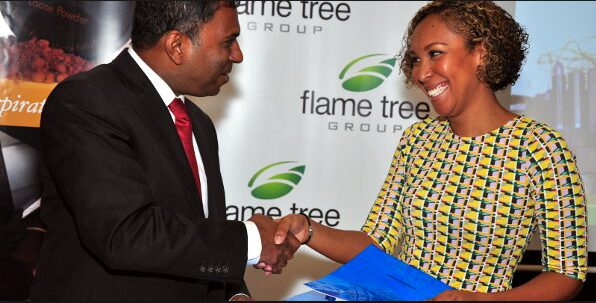
In 2011, Suzie Wokabi, founder of Kenyan cosmetics brand, Suzie Beauty, said the following about her vision for her brand: “My dream is to turn SuzieBeauty Limited into a household name for everything beauty on the continent, and internationally. I want to become the MAC of Africa!”. Six years before that, she had returned to Kenya as a trained makeup artist looking to stock up on goods. She faced a number of challenges such as not being able to find the high quality brands she was used to. Where she was able to find them, they were often unavailable, overpriced, or counterfeit. So in 2009, Wokabi launched her own local brand. Seven years later, she is in reach of the vision she set out for her company. On January 25th, 2016, SuzieBeauty announced that it has been acquired by regional manufacturing company, Flame Tree Group, pending approval of the competition authority. Suzie said the following about the sale of her company: “For me this is the biggest milestone so far.” Wokabi explained, “with the resources at Flame Tree Group, SuzieBeauty will likely expand its range to include skincare products such as cleansers, moisturisers and eye creams. There will also be investments into better distribution and marketing. In the long-term, production could be moved from China to Kenya”. This wife, mother, daughter, and entrepreneur is trailblazing the way for other Motherland Moguls. There is so much to learn from the successful sale of Wokabi’s company. We’ve narrowed it down to just 8. 1. Do your research In choosing to start a beauty brand, Wokabi did extensive research on the Kenyan beauty market. In an interview with How We Made It In Africa, Wokabi said the following: “My research shows that the development of products to fill our specific market needs has the potential of becoming a big and profitable business.” She also did extensive testing of her products in the market before launching her business. She developed her product line and spent a year of testing on the market before launching in 2011 and beginning retail operations in 2012. 2. Choose to work in your passion Wokabi once said, “If I did not completely love everything about SB and the beauty industry, I would have given up a very long time ago. I now understand why most startups fail. When you don’t have the passion and everything is an uphill battle, it becomes so easy to quit.” 3. Dream BIG From the start, it is clear that Wokabi had a strong vision for her company and brand. From her early interviews before the launch of her product line to more recent ones, the vision has always been, as she said, to “distribute Africa-wide. The sky is the limit”. 4. Know your magic While strong on quality products, Wokabi has said time and time again that the affordability of her products is what makes her competitive in the local and international market. When she was asked if SB stand out in the midst of international beauty brands that had recently entered the Kenyan market? She responded, “None of them will ever beat me in price. The whole point of SB is the affordability of quality beauty products.” 5. Get help in your weak areas Wokabi says she knew nothing about business prior to her endeavor. She has especially struggled with financials, an area her husband has supportive in. 6. Learn from your mistakes While successful, Wokabi has never shied away from the mistakes and mishaps in her journey. After some false starts with partners, Wokabi made sure to engage differently with future partners. She explained: “We have had so many bad partnerships. We have had both equity partners and debt investors. There were just too many mistakes made. We were very particular about this one. This time we didn’t make any mistakes – and it feels right, completely.” 7. Engage with investors and finance partners who understand your company and your vision While in talks with Flame Tree Group, Wokabi was in talks with other potential investors. She had this to say about Flame Tree Group: “The chemistry has always been right from the beginning. So any challenges we ever came across, we would fix together.” Flame Tree Group CEO, Heril Bangera, also had this to say, “We want to increase the brand’s presence in the market. We have seen the brand is successful, so there is an opportunity now to use that as a base to grow it within Kenya and beyond.” 8. Knowing that someone did it helps Wokabi often mentions her role models, Bobbi Brown, in interviews. Bobbi Brown was an American professional make-up artist who founded Bobbi Brown Cosmetics. Estée Lauder, the America beauty products giant, bought the brand in 1995, with Brown retaining creative control. Wokabi will similarly retain creative control of SuzieBeauty. We wish Wokabi, SuzieBeauty, and Flame Tree Group much success in their new venture. What other insights have you learned from this acquisition? Share them below.
